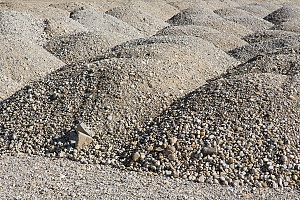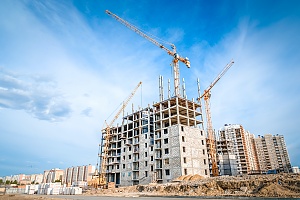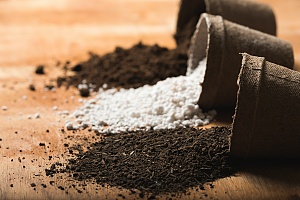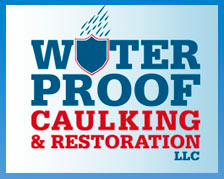 Substrate refers to an underlying layer that supports the primary layer. The term is commonly used in the construction and renovation industry. Substrate material often refers to rock, soil, and other natural elements, especially when discussed in the context of foundation construction. There are also commercial substrate materials made for specific construction purposes. Notably, there are substrate materials used especially for waterproofing systems. Certain areas and buildings are more vulnerable to water damage due to rainfall or how the building is used. In these instances, a waterproofed substrate material can reduce the risk of damage to the property in the event excess water was to reach the foundation, walls, or roof.
Substrate refers to an underlying layer that supports the primary layer. The term is commonly used in the construction and renovation industry. Substrate material often refers to rock, soil, and other natural elements, especially when discussed in the context of foundation construction. There are also commercial substrate materials made for specific construction purposes. Notably, there are substrate materials used especially for waterproofing systems. Certain areas and buildings are more vulnerable to water damage due to rainfall or how the building is used. In these instances, a waterproofed substrate material can reduce the risk of damage to the property in the event excess water was to reach the foundation, walls, or roof.
Professional waterproofing services can also help substrate materials that are not water-resistant from becoming damaged. They do this by sealing areas where water may seep into the underlying layers of a property’s foundation, concrete, or other parts. The benefits of waterproofing substrate materials include increased durability, better aesthetic appeal, and reduced costs long-term. The following is an overview of what substrate material means and how it affects the overall structural integrity of your property long-term, and what you can do to ensure your substrate is protected.
What Is Substrate in Construction?
Many think of foundation material as the layer of cement that is placed before home or commercial property construction begins. However, underneath the layer of concrete (or other foundation material) is the substrate. One example of substrate material for foundations is an oriented strand board or OSB. It is similar to plywood, but it is far more water-resistant. There are other types of substrate materials for waterproofing systems as well.
While not all buildings require a waterproofed substrate, understanding the type of substrate material and how vulnerable it is to water exposure is important. The substrate should be an important consideration of construction, as it is hard to replace in the foundation after the substrate material is applied.
What Building Owners Need To Know About Substrate Materials
 The substrate material used plays a role in how well-protected the building is. A less reliable substrate could lead to major foundational concerns in the future. For example, a substrate that consists of plywood is more vulnerable to water damage. On the other hand, substrate materials such as OSB are resistant to water, which may provide better durability for many commercial properties.
The substrate material used plays a role in how well-protected the building is. A less reliable substrate could lead to major foundational concerns in the future. For example, a substrate that consists of plywood is more vulnerable to water damage. On the other hand, substrate materials such as OSB are resistant to water, which may provide better durability for many commercial properties.
Each building owner should assess the risks to the structural integrity of their property. This can determine the best type of substrate material to use and whether or not a waterproof substrate is necessary. For building owners who are not sure whether their roof, walls, and floor are vulnerable to water damage, it is encouraged to discuss the risks with a waterproofing expert.
Waterproofing For Different Substrate Materials
Many recommend choosing a more water-resistant substrate material during the construction stages. However, for many business owners, this is not an option. If changing a plywood substrate, or another type of substrate that is not resistant to water, is not an option, then waterproofing is strongly recommended. This is also encouraged for businesses with OSB or another type of waterproofed substrate.
Waterproofing often involves using a sealant to reduce the risk of water reaching and damaging building materials and the substrate. Many who waterproof their commercial property receive a range of benefits, including longer durability and support for the structural integrity of the property, reduced energy costs each month, and a more climate-controlled building that helps employees, clients, and customers stay comfortable.
Reach Out to the Waterproofing Professionals
Common Substrate Flaws
Perhaps the most common substrate flaw is not considering how water-resistant the substrate is. When the foundation substrate is composed of untreated plywood or other types of building materials that are vulnerable to water exposure, it increases the risk of complications over time.
Another common mistake many make is not waterproofing the substrate. Professional waterproofing services prevent damage to the home caused by water (i.e. mold, warping, and weakened building materials). Substrate waterproofing can lengthen the lifespan of concrete, home, and commercial property foundations. It can also make it easier to maintain the quality of the appearance of your property, reducing the risk of staining, cracks, and various other aesthetic concerns.
Call The Waterproofing Experts
 Give our team at Waterproof Caulking & Restoration a call today for more information about substrate materials. We specialize in waterproofing services and can help residential and commercial clients in the local areas. We tailor our services specifically for each client, and we are glad to explain each step we take throughout the servicing process so that you understand the benefits and what to expect long-term.
Give our team at Waterproof Caulking & Restoration a call today for more information about substrate materials. We specialize in waterproofing services and can help residential and commercial clients in the local areas. We tailor our services specifically for each client, and we are glad to explain each step we take throughout the servicing process so that you understand the benefits and what to expect long-term.
If you are worried that your substrate material is vulnerable to water damage, then reach out by phone or email today. We respond to all who are interested promptly, and we are glad to answer your questions and help you decide if waterproofing is right for you.
